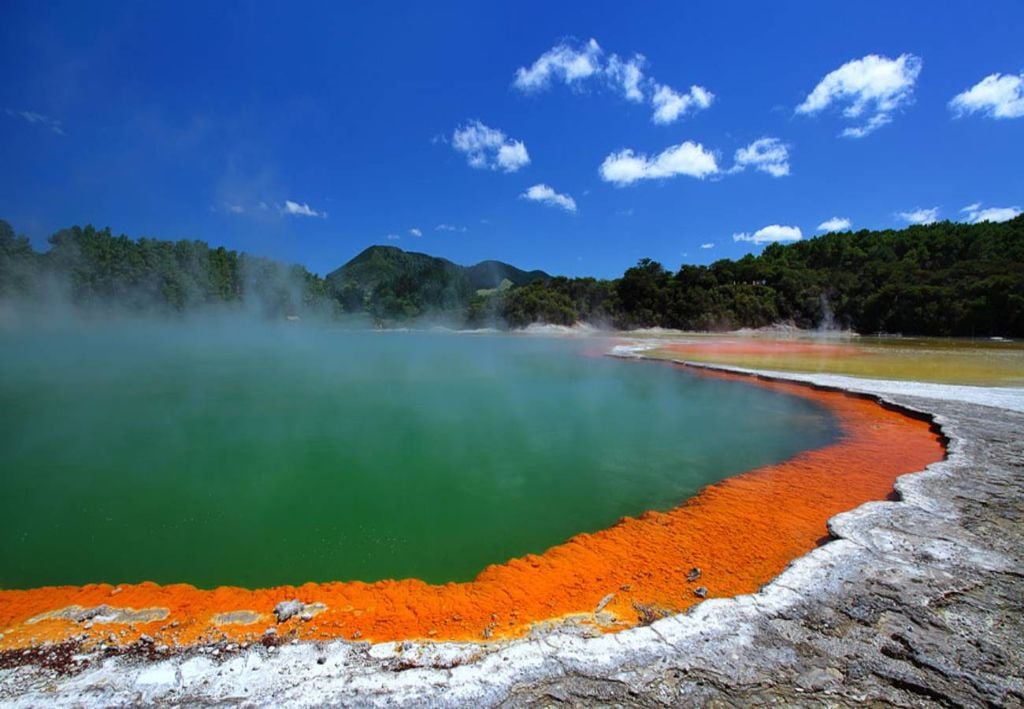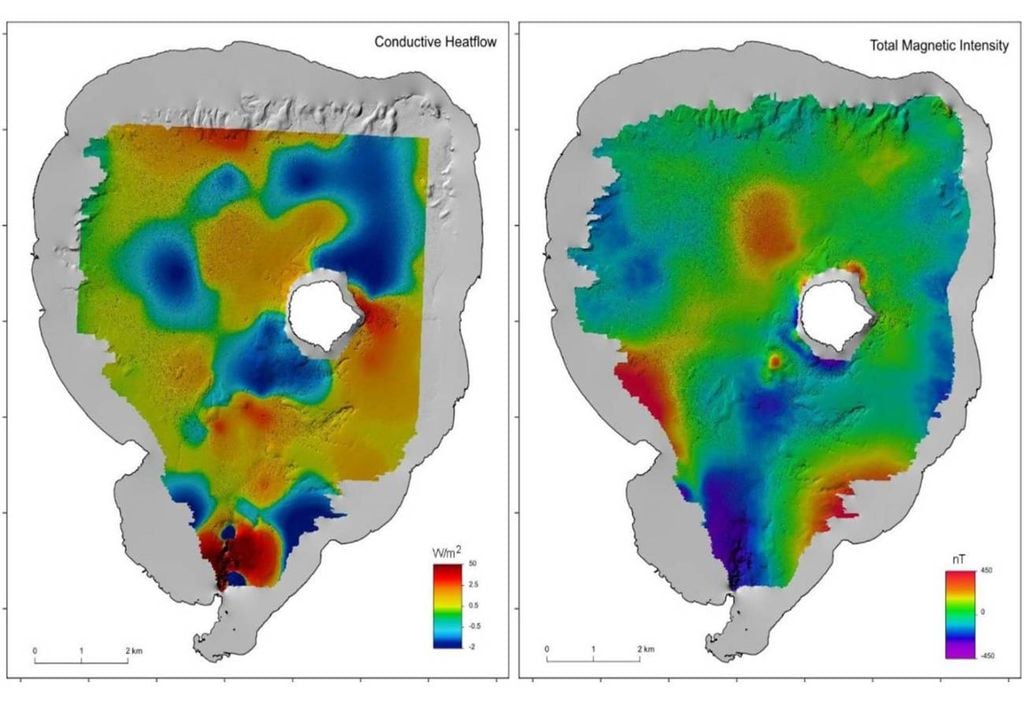
New Zealand is a country of natural beauty. An example Lake Rotorua is the second largest lake in the country's North Island, covering an area of 79.8 square kilometres, and borders the city of the same name.. It is the setting of a Maori legend that tells the story of a forbidden love, but in addition to the mythology, it is also famous for its dazzling colors.
Lake Rotorua is famous for its dark blue-green water due to the presence of sulphur, making it a place of scientific interest.
And for the first time, researchers Company GNS Science They mapped the depth of this lake in detail They discovered a “magnetic anomaly” that could help them understand the activity of volcanic lakes in the region..
Discovery at Lake Rotorua
researchers They have mapped 68% of the lakeThat Discovered in the ancient crater of a dormant volcano. The main approach was to use a multibeam echo sounder (a type of sonar) to reveal the depth and shape or bathymetry of the lake bed.
Lake Rotorua is believed to have formed after an Earth-shattering eruption about 220,000 years ago. The volcano responsible for the eruption lies dormant beneath the lake.
The mapping results were revealed Signs of hydrothermal activity under the lakeSmall calderas with craters in the lake basin, as well as A Curious “Magnetic Anomaly”.
According to researchers, These small craters may be the result of hydrothermal eruptions: They are formed by the outflow of gas and hot water and still emit almost incomprehensible heat fluxes. They observed this along the coast Sulphur point (a geothermal wetland south of Lake Rotorua that contains sulfur deposits), where warm water rises into the lake and cool water is pushed down.
Despite this drastic measure, The temperature at the bottom of the lake is around 14 degrees CelsiusDue to the large volume of cold water that neutralizes the heat from below.
Lake's “Magnetic Anomaly”
This is “Magnetic Anomaly” Curious researchers indicated the presence of pyrite instead of the expected magnetite On the volcanic rocks of the lake.
Igneous rocks often contain magnetite, which is highly magnetic. They think that Warm water of the lake (Hydrothermal Fluids) Changed magnetite into another mineral, pyrite, which has practically no magnetic signal (This can be seen in the blue tones in the image below, which includes craters from hydrothermal vents). they are associated with low or magnetic intensity). This hydrothermal process greatly reduces the magnetic signal and explains the failure.

“Normally, with volcanic rocks, when you cross a magnetometer, you get very positive anomalies, but in this case we Odds are getting NegativeProbably because of the very low magnetic susceptibility,” said Cornell de Ronde, a geologist at the institute. GNS .
For researchers, this is a sign The ancient volcano, although dormant, continues to affect Lake Rotorua. And for Ronde, the research is “an excellent example of a holistic approach to understanding our geothermally hosted volcanic lakes, allowing us to better model the complex operations of Rotorua's geothermal system.”
News Note:
New maps reveal the hidden depths of Lake Rotorua. GNS Science2024.

“Typical beer advocate. Future teen idol. Unapologetic tv practitioner. Music trailblazer.”
